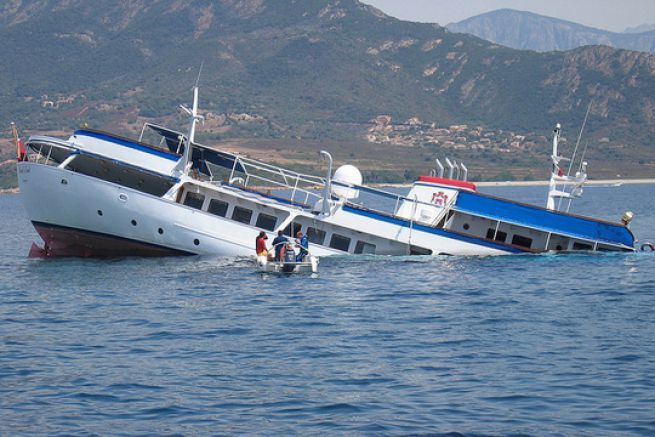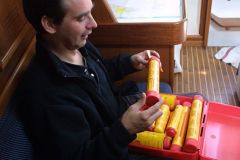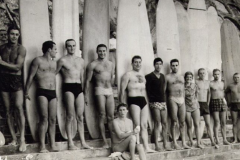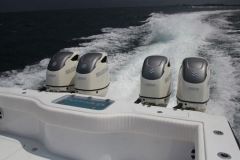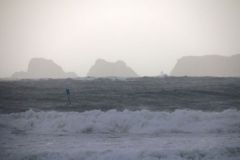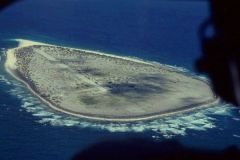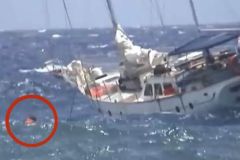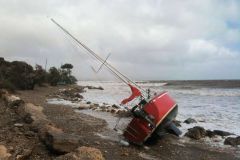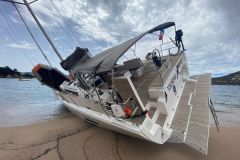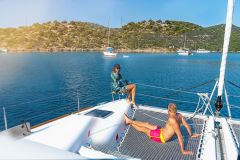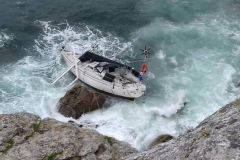I make a bad maneuver and my boat sinks. Does the insurance reimburse me or do I lose everything? We asked Jérôme Heilikman, president of the Legiplaisance association, to answer this question.
First of all, it should be remembered that yacht insurance is governed by the "terrestrial" provisions of insurance law (Article L. 171-5 of the Insurance Code) "This title shall not apply to insurance contracts the purpose of which is to insure risks relating to recreational boating." )
In recreational boating, insurance is not mandatory except in the particular situation of a sport practice (sailing license) which does not prevent the obligation to compensate the victims of an accident for which the boater is responsible.
In the field of boating, there are three main insurance policies (the civil liability insurance which covers bodily and material damages caused to third parties by the boat such as during a collision or injuries to the crew; the insurance against theft which covers the boat and the hull insurance which reimburses the costs of repairing the boat after a damage or its total loss after a storm, a shipwreck, a fire or a grounding).
In the event of a shipwreck, the hull insurance will cover the damage and loss of the boat and its equipment.
When taking out the contract, the insurer will ask the yachtsman to indicate the insurance value of the boat. This value must be carefully determined, taking into account not only the economic value of the boat, but also the essential fittings and accessories. This value will have important consequences in case of a claim:
- Vessel insured at declared value The insured must prove the insured value at the time of the loss.
- Vessel insured at agreed value the onus is on the insurer to prove that the market value is less than the agreed value
- Vessel insured at replacement value the insured must only provide evidence in accordance with the conditions of the insurance policy taken out
Principle of the hull insurance: the coverage of the losses and damages of the ship in case of sea fortune
The purpose of the hull insurance is to reimburse the costs of repairing the insured vessel after damage, or the total loss of the vessel due to storm, shipwreck, grounding, collision, fire, explosion, collision with a fixed, mobile or floating body, and all accidents and fortunes at sea.
Shipwreck and maneuvering error
The role of the insurance company is to substitute itself for the person responsible for the accident in order to compensate the victim. Two situations should be distinguished:
- Sinking due to an intentional maneuver or due to a violation of maritime regulations In principle, insurance contracts do not cover losses and damages that occurred while the boat was in contravention of the texts and decrees in force relating to pleasure boating. The same is true when the yachtsman has voluntarily caused damage, the intentional fault which leads to the exclusion of the guarantee consists in the yachtsman having had the will to cause damage but also the awareness of the consequences of his act.
- Sinking caused by a maneuver of the insured boater Article 1384 paragraph 1 of the Civil Code specifies the general principle that " one is responsible not only for the damage he causes by his own act but also of that which is caused by the fact of the persons for whom one must answer, or of the things which one has under his care."
As mentioned above, the insurance of pleasure craft is governed by land-based rules. In this respect, article L. 121-2 of the Insurance Code should be applied, which states "The insurer is liable for loss and damage caused by persons for whom the insured is civilly liable under Article 1384 of the Civil Code, regardless of the nature and seriousness of the faults of such persons." From the combination of these two articles, it follows that in the event of a shipwreck caused by an unintentional manoeuvre by the boater, the insurer must guarantee the resulting damages.
What to do after the wreck?
Usually, the insured has five working days following the event to notify his insurer by registered letter, indicating the references of the insurance contract, the causes and circumstances of the loss, the place where it occurred, the nature of the damage and, if applicable, the names of witnesses.
Finally, be aware of the deductibles and possible coverage limits that are very important in recreational boating.
In short, if the wreck is the result of an accidental and unintentional maneuver, the insurance will reimburse you for the damages.
